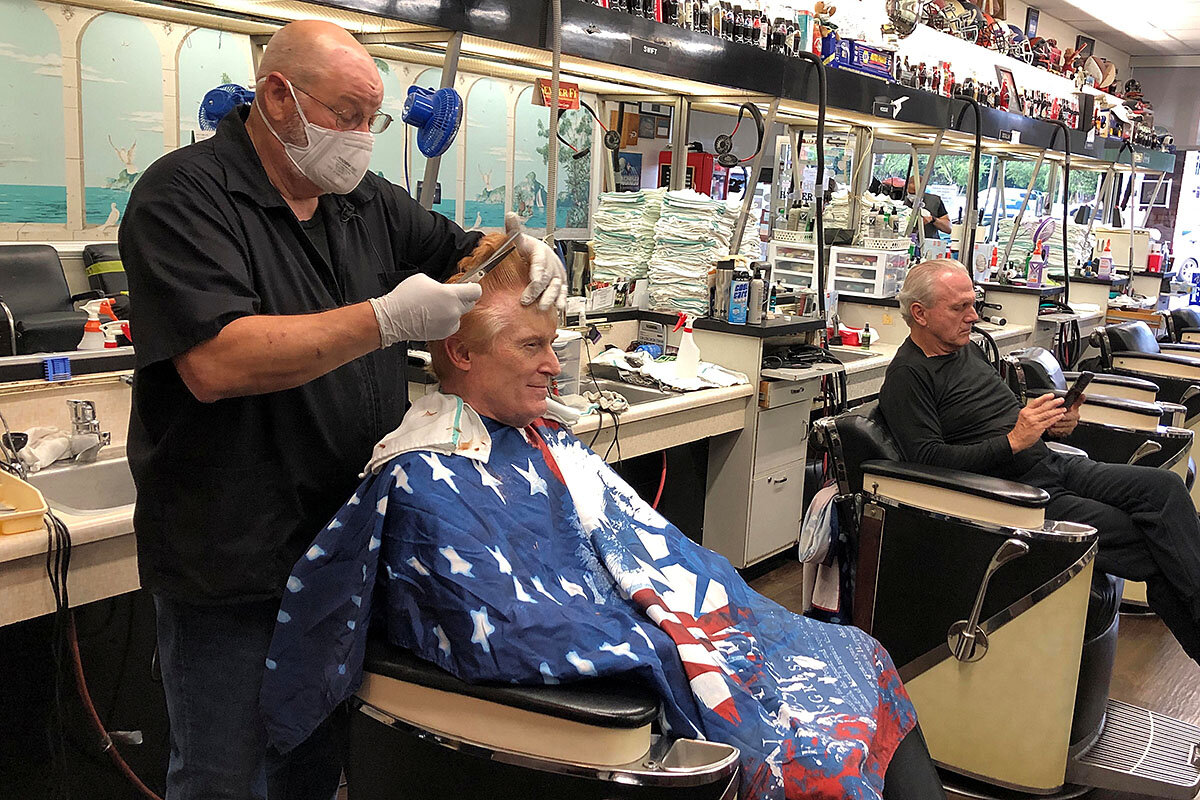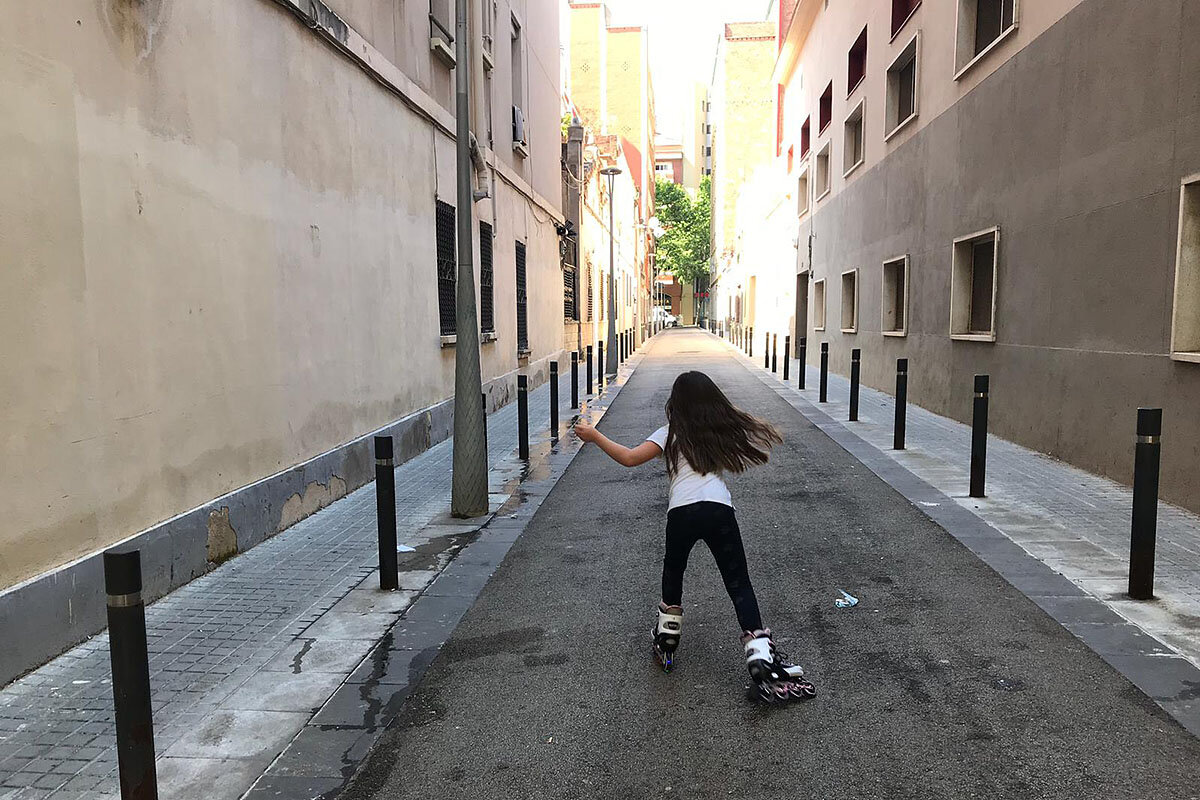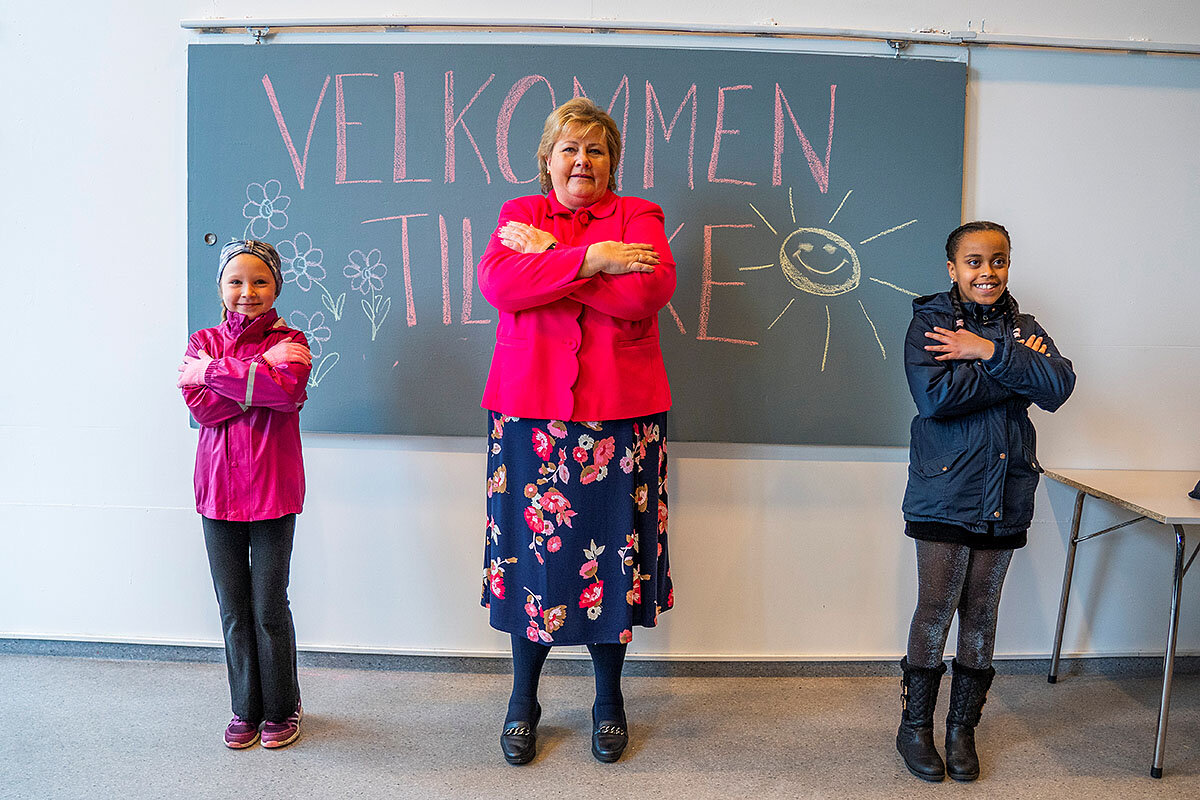In the United States, politics has sharply asserted itself in the handling of the pandemic. President Trump is pushing a bifurcated – and risky – message as he looks to Nov. 3 and tries to shape voters’ views of how he handled the crisis.
Monitor Daily Podcast
- Follow us:
- Apple Podcasts
- Spotify
- RSS Feed
- Download
 Amelia Newcomb
Amelia Newcomb
We're starting our week with a themed Daily for you. We have six stories today, all looking at elements of the coronavirus pandemic, from its politics to the handling of locking down and opening up in the United States, Sweden, and Spain – and in urban areas as well as parks. We hope you'll enjoy it. We'll start with a global call for prayer.
It seems we can’t be reminded enough of our brotherhood and sisterhood amid COVID-19. Red hearts hanging in windows help us along, as do messages that “We’re all in this together!” Yet anger and threats, even if from a vocal minority, have started to rear up as the pandemic wears on.
So two developments in Jerusalem last week were eye-catching in their aim to break through the noise. The Jewish women’s group Momentum launched a global prayer movement to support health care workers. “Pray for those in need, including yourself, it will give you strength and help lift the world,” they wrote. And the city’s chief rabbis and Muslim and Christian leaders gathered on a balcony overlooking the Old City, reciting together a prayer for the world.
Their faith traditions all urge rising above differences. The book of Genesis: “Let there not be strife ... for we be brethren.” The book of Matthew: “whatsoever ye would that men should do to you: do ye even so to them.” The Quran, chapter Al Imran: “Hold firmly to the rope of God and do not become divided.”
Washington Post columnist Marc Thiessen recently wrote of reaching out on social media – an often hard-edged space – for support for his mother, hospitalized with COVID-19. “My family was enveloped in the compassionate embrace of countless strangers,” he wrote. Many sent prayers; many, “good vibes.” Some were political soulmates, some not; it didn’t matter. “To everyone praying for my mom: Thank you,” he wrote. Quoting a gospel song, he added, “I’m so glad you prayed.”











